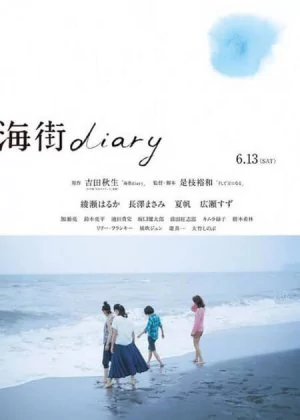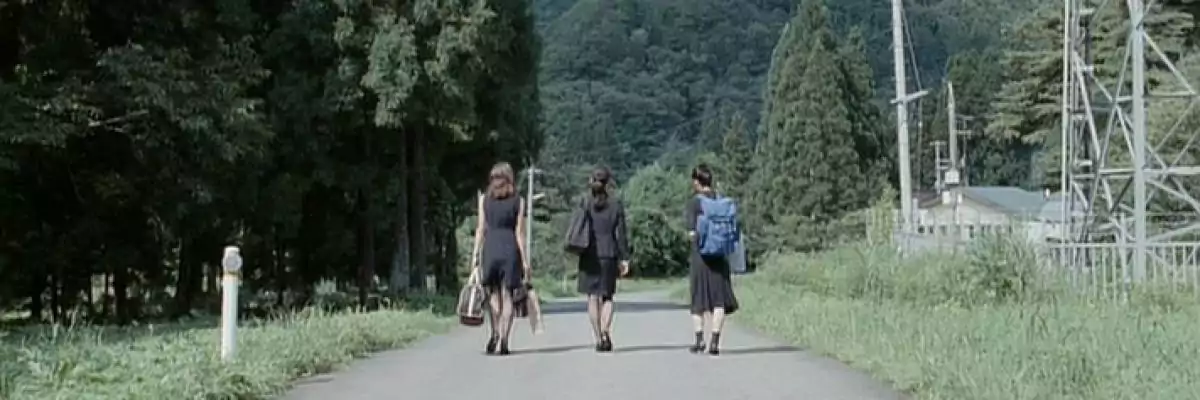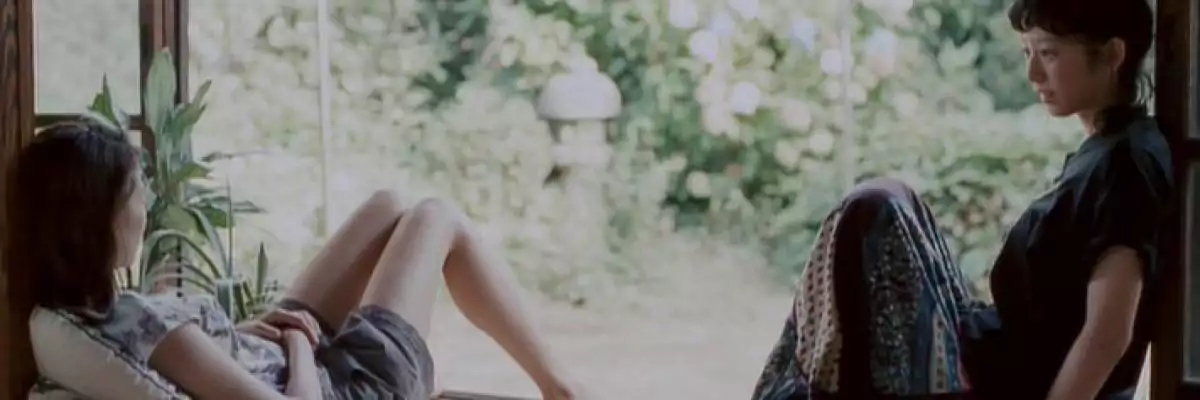Our Little Sister
Movie details

After some tougher years, it seems Hirokazu Koreeda is slowly returning to his old form. Soshite Chichi ni Naru was already a step in the right direction, with Umimachi Diary [Our Little Sister] Koreeda continues this upward trajectory. His latest is still not quite up there with his very best films, nonetheless it's a gentle, warm-hearted and soft-spirited drama that carries Koreeda's signature from start to finish. Fans of his lighter work should be pleasantly surprised.

You may not really expect it, but even a guy like Koreeda isn't beneath adapting a manga when push comes to shove. Our Little Sister is an adaptation of Akimi Yoshida's prize-winning comic, but unless you were already aware of the existence of the manga Koreeda's film does in no way feel like a typical adaptation. There are no talking pandas, no mecha, no harems, no superheroes or tentacles, instead the film bears a closer resemblance to adaptations like Otoko no Issho and Usagi Drop. Our Little Sister is a typical, gentle, Japanese drama that just happens to be based off a comic.
Gentle is really the keyword here. It's rare to see a film that is so well-meaning and good-natured as Our Little Sister. And it's not as if Koreeda lacks opportunities to crank up the dramatics. The film starts with a funeral, we see kids from different marriages living together, a mother who abandoned her daughters, villagers who are struck by incurable diseases and I can go on for a while. It sounds like the recipe for a hefty drama, but instead Koreeda turns it into a snug package of reconciliation and comfort.
The film follows three adult sisters (Sachi, Yoshino and Chika) who live together in their family home. They were abandoned by their father when they were still quite young, but when word arrives he passed away they set out to attend his funeral. There they meet up with Suzu, their teen half-sister. After a short introduction, the three decide to ask Suzu to come live with them for a while. Suzu accepts and moves in with her sisters in order to learn more about her dad's past.

There's little experimentation on the visual side of things. Our Little Sister is a typical Japanese drama set in a rural area, so expect to see lots of blues and greens, slightly washed out colors, plenty of sunshine and short bursts of overpowering pink when sakura season starts. It looks and feels like a live action Miyazaki film at times, basking in warmth and embracing nature as much as possible. It gives off a very pleasant and agreeable, but it's not exactly spectacular.
The soundtrack is similarly pacifying. Very typical piano/string tunes that happily float around in the background, only sporadically moving up to the front to underline certain slightly more dramatic moments. What's maybe less apparent but at least as important is the voice track. There are lots of female characters in Our Little Sister and they all talk very softly and politely while sporting cute accents. Japanese can sound very harsh or very delicate depending on how it's being used and Koreeda makes good use of that here.
The cast puts in a good performance, though there aren't too many complex roles here. All the characters are welcoming and open and whatever differences they have never really linger. Haruka Ayase (Amemasu no Kawa) takes the lead as Sachi, Chika (played by Kaho) is probably the most likable of the bunch and Suzu Hirose is the promising newcomer. Some great secondary performances by Takafumi Ikeda, Ryo Kase, Shin'ichi Tsutsumi and Jun Fubuki seal the deal.

What makes Our Little Sister special isn't its lack of drama, nor its characters, plot or aesthetic qualities. What makes it special is its almost boundless optimism. Most films are constructed around pain, despair, loss or any other conceivable type of conflict. And I'm not just talking dramas here, even comedies have their half-time dramatic setback which the main character has to overcome in order to get to the trademark happy ending. It seems to be part of the DNA of storytelling.
There's just none of that in Our Little Sister. Drama is temporary and easily overcome by the characters, who draw strength from family and tradition. Positive and uplifting elements permeate every single aspect of the film in such a way that I can't remember ever seeing it done this consistently in any other film. From the sunny surroundings to the warm personalities of the characters, from the traditions shared in the little village to the soft-voiced dialogues, everything is tailored to be as pleasant and heart-warming as possible.
Because the film lacks any sense of urgency or lingering drama, it's probably not for everyone. Koreeda is smart and talented enough to avoid false sentimentality, but if you're not up for a film that goes out of its way to avoid friction then Our Little Sister has little to offer. I loved it though. It's a welcoming, soothing and comforting drama that's just all too rare in cinema. Hopefully Koreeda continues this upward trend, I'm already looking forward to his next film.